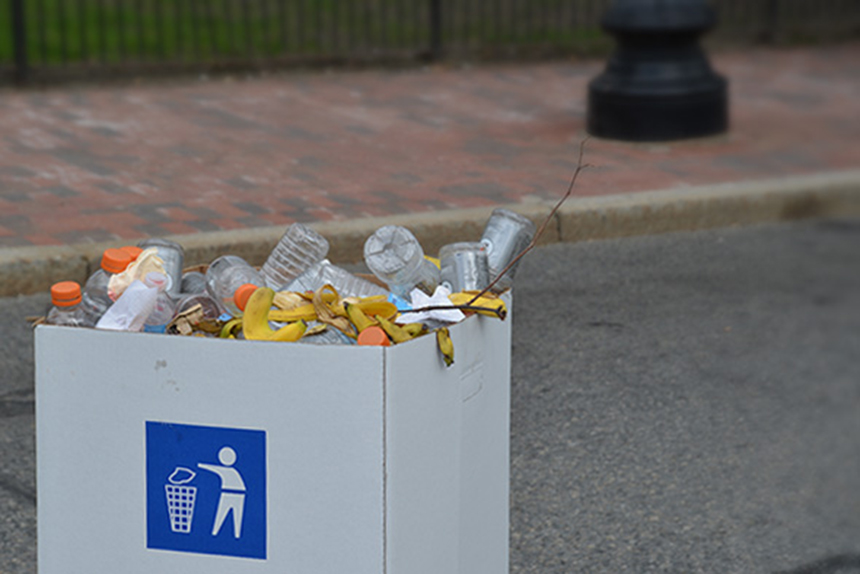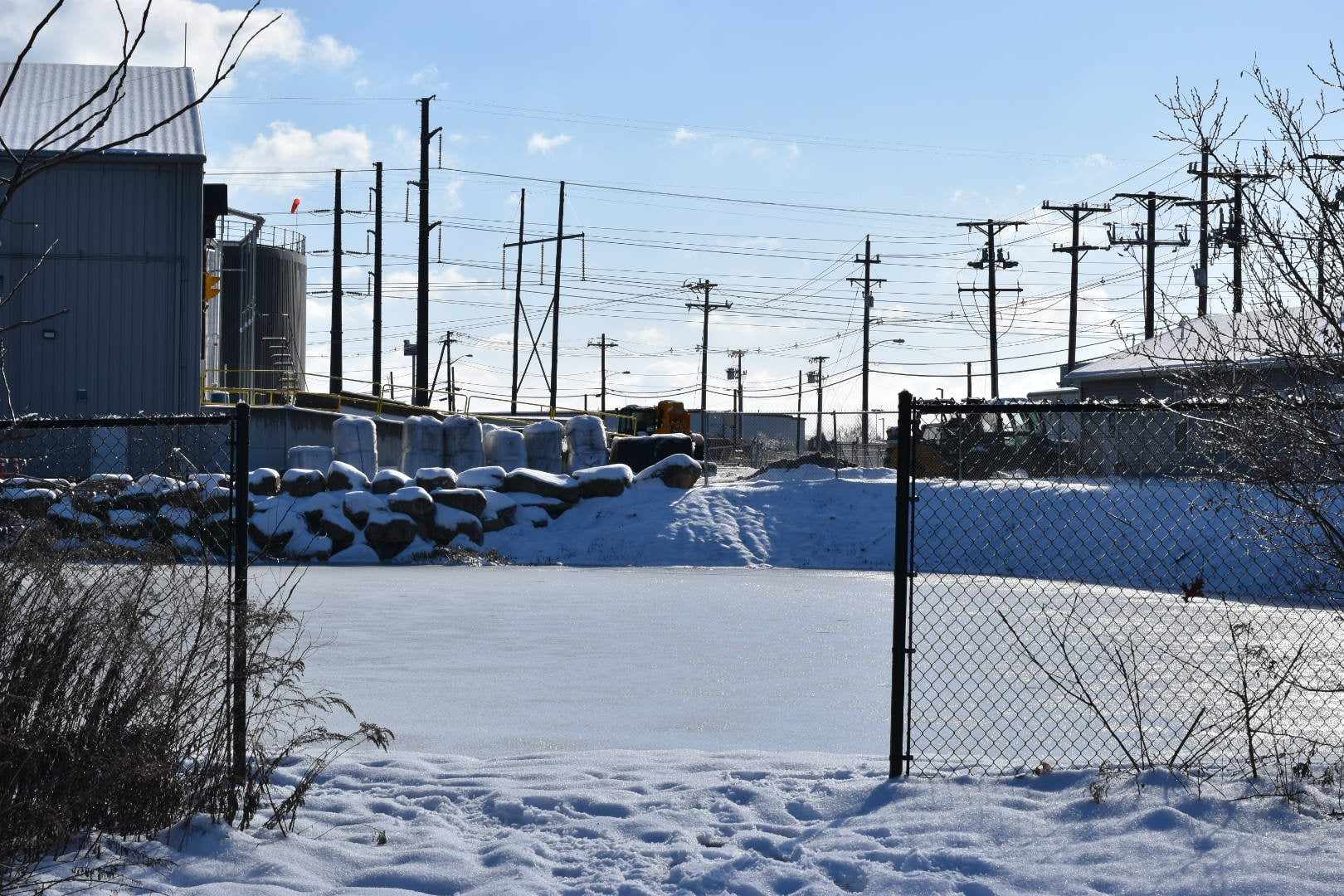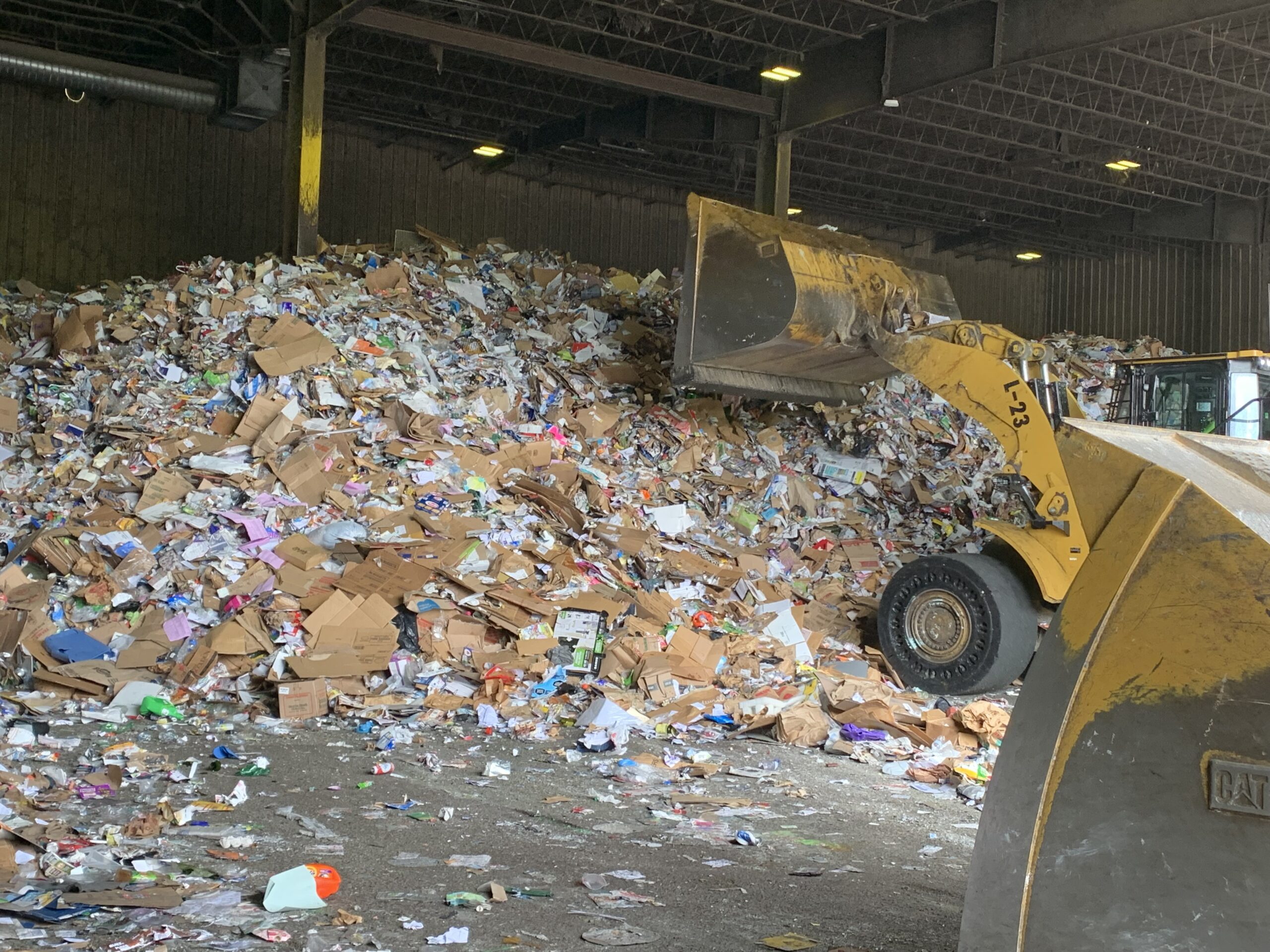Landfill Considers Pay-As-You-Throw for All of Rhode Island
October 30, 2014
JOHNSTON, R.I. — The operators of the Central Landfill are considering a big and bold change for trash collection and fiscal management of Rhode Island’s waste. If adopted, a system known as pay-as-you-throw (PAYT) would extend the life of the state landfill, increase recycling and expand other waste-reduction initiatives, according to supporters. But the highly effective concept, which requires residents to pay for special trash bags, is also controversial.
“I assure you the angry mobs will be going to the town halls and city halls complaining that this is another tax,” Jeanne Boyle said during the Oct. 29 Rhode Island Resource Recovery Corporation (RIRRC) board meeting.
Bolye, one of seven commissioners on RIRRC’s board and director of planning for the city of East Providence, echoed a common concern among the board: adopting PAYT across Rhode Island will trigger an enormous political fight at the Statehouse and within most of the state’s 39 cities and towns.
“This is way, way beyond asking to raise the tipping fee. This is a new paradigm,” said Geoffrey Kirkman, the Providence representative and vice chairman of the RIRRC board.
The commissioners largely agree that PAYT is effective. Communities with PAYT, such a Middletown and Worcester, Mass., create less trash and have substantially higher recycling rates. Fiscally, it makes waste management more sustainable and equitable, as residents pay for what they contribute to the waste stream.
But PAYT requires a significant change in behavior: residents must use special trash bags for their curbside waste collection — bags that can cost as much as $2 apiece.
“It’s a great idea. I don’t know how we are going to implement it,” said Lori Ann Pezzullo, who represents Johnston on the RIRRC board.
Pezzullo predicted significant pushback from Johnston residents, who get free waste collection for hosting the state landfill.
The RIRRC board of commissioners is giving PAYT serious consideration, paying $50,000 to waste consulting firm WasteZero of North Andover, Mass., to study the idea of a statewide program. At the Oct. 29 meeting, WasteZero presented its findings:
Eliminate municipal tipping fees. Since 1992, the cost of delivering a ton of municipal waste to the landfill has been stuck at $32 per ton. RIRRC and environmental advocates argue that the artificially low cost to dump trash eliminates market incentives for enhanced composting and other waste-reduction programs. Because of pressure from cities and towns, the General Assembly avoids raising the tipping fee. Under PAYT, cities and towns would no longer pay tipping fees. The costs for municipal waste management would be shifted directly to residents. RIRRC would set the cost for the bags, which wouldn’t change for at least 10 years. Curbside recycling wouldn’t require bags and would have no direct cost to residents.
Landfill lives longer. PAYT is expected to decrease municipal waste statewide by 34 percent and increase recycling by 46 percent. PAYT would extend the life of the landfill from 24 to 38 years.
Fiscal stability. RIRRC faces a deficit in fiscal 2018 and will push to raise tipping fees unless a new model such as PAYT is adopted. Revenue from the sale of PAYT bags, plus commercial tipping fees and revenue from increased recycling, would keep the books balanced for decades.
Rebate. The annual rebate awarded to cities and towns from the sale of recyclable material collected curbside would increase. Larger rebates, combined with the elimination of tipping fees, would give municipalities an estimated annual savings of about $200,000. Those savings could be passed on to residents by cutting the cost for bags or used for increased waste-reduction programs.
Environmental benefits. The waste-reduction and recycling benefits would be equivalent to taking 36,000 cars off the road and reducing gasoline use by 20,721,000 gallons annually.
How pay-as-you-throw works:
There are several PAYT programs. Some Rhode Island communities already use the version that requires residents to pay for each bag or carload of trash brought to a municipal transfer station. The curbside, bag-based system used by Middletown is considered the most effective for cutting waste. The bags are brightly colored, have a decal or logo and only those special bags are collected.
A PAYT bag system also works in communities using cart collection such as Providence, Warwick and Newport. The fee for the bags, therefore, serves as an incentive to recycle, compost and generate less waste overall. The program is typically managed by a third-party vendor that keeps local stores supplied with the bags and provides public outreach.
WasteZero has recommended that the bags cost $2 for 30-pound ones; $1.25 for 13-gallon bags and 75 cents for 8-gallon bags. The cost to the average household is an estimated $10.40 a month.
The RIRRC board recognizes that the shift from a tax-based funding structure used by many cities and towns for waste collection to a fee-based one will be challenging. The board, however, is waiting for an opinion from its lawyers as to whether RIRRC can enact statewide PAYT without General Assembly approval — a move the commissioners are cautious to take.
Board member Joseph White called bypassing the General Assembly “a backdoor, behind-the-scenes initiative.” He preferred that cities and towns opt into the system on their own. “I like pay-as-you-throw,” he said. “I don’t like it done on a statewide level.”
North Providence Mayor Charles Lombardi, chairman of the RIRRC board, acknowledged that change will be hard, but pay-as-you-throw is likely necessary for Rhode Island to manage its waste. “This is probably the answer,” he said. “It’s pay me today, or pay me tomorrow. That’s the bottom line.”
The RIRRC board of commissioners is expected to dedicate a full meeting to the PAYT concept at its Dec. 3 meeting.
Categories
Join the Discussion
View CommentsRecent Comments
Leave a Reply
Your support keeps our reporters on the environmental beat.
Reader support is at the core of our nonprofit news model. Together, we can keep the environment in the headlines.
We use cookies to improve your experience and deliver personalized content. View Cookie Settings




The response is interesting–similar to the aversion people have sometimes to tolling and gas tax hikes, even though in both cases people are simply being asked to pay for the things they use, and even though lower income residents tend to be less affected by these changes.
This won't work in some communities. Waste will build and a rat problem will develop. How about tightening up on the recycle program first….
By looking at the comments already posted, it seems as though there are two ideas that arise from this. The first is tightening up our recycling program, and the second being waste build up. I believe that PAYT would be effective throughout RI in reducing waste by 34%, and in doing so would give the communities the incentive to compost and throw away less, in order to reduce the amount they throw away (saving $). In order to address this problem of Recycling, we could look at another company TerraCycle which promotes an eco friendly environment. It takes the waste of our everyday household, and turns it into new products that are then sold at market. I think that this idea of PAYT would be affective in RI, but before we do so, we also need to look at other strategies like Recycle Bank and TerraCycle.
It would be hard to get everyone to agree with the PAYT system, although it would be effective to decrease waste buildup. The Johnston waste treatment plant can only run so long, without being overrun with trash and it is the resident’s job to make sure we can have a sustainable area to handle waste. By using similar methods like in Narragansett, RI can increase it’s recycling and lower the overall amount of solid waste. Using the waste can power houses and lower the cost of recycled items such as plastic bottles for juice. although we are all focused on how a new tax would effect us negatively, residents could potentially earn money instead of throwing it out with the trash.
PAYT system contrary to popular belief is a older system dating back to 1920’s. The system makes it so that the more you throw out the more you pay. This is a hard concept to get across to the public because it is hard to inspire people who have to pay a monthly fee, to recycle more. Also to most people this is a confusing concept because it is hard to see how this helps the environment, and community they are living in. Overall this system will be tough to become beneficial for state of Rhode Island.